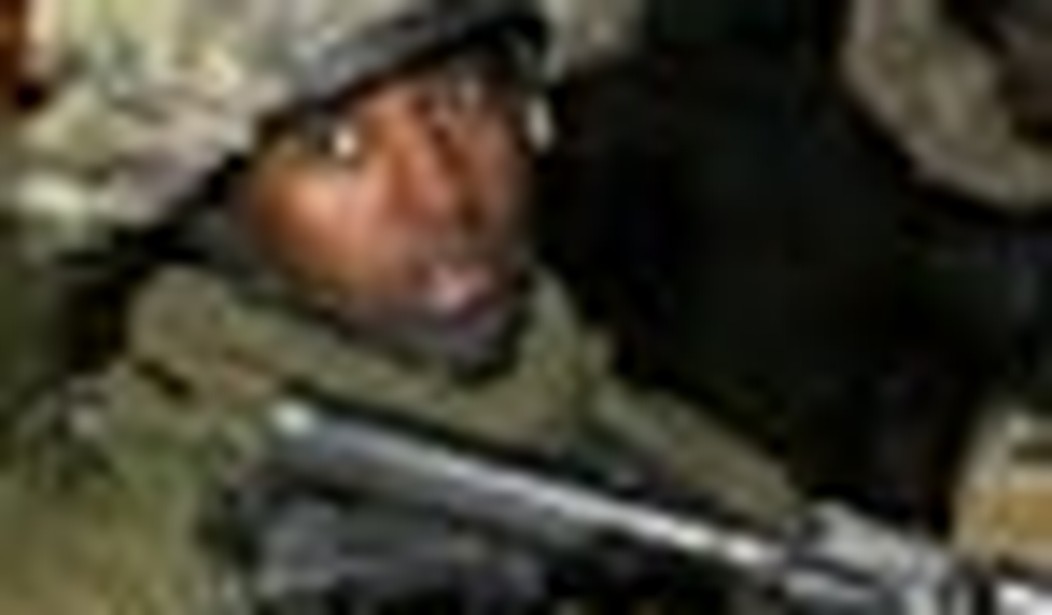“By occupying the Gaza Strip, Israel would trade approximately 45 miles of hostile border for eight. Configured as it is, the strip serves as a salient for introduction of Arab subversion and terrorism, and its retention would be to Israel’s military advantage.”
Those words were written in June 1967, soon after the Six Day War, as part of the Joint Chief of Staffs’ study on what lands Israel needed to retain to be defensible. It took until the summer of 2005 for Israel to try withdrawing militarily from Gaza and see if it would work.
On Saturday night, three and a half years and 6500 rockets and mortars later, a large Israeli force finally reentered the Strip to try and remove what has become a 24/7 threat of being suddenly blown to pieces hanging over the lives of 800,000 Israeli civilians.
Many had said that, once Israel withdrew from Gaza, it would be in a superior military and moral position — with international understanding — to strike back hard from the air if terrorists in Gaza still dared to fire projectiles. Over the past week Israel has finally tried that approach. Israelis wanted it to work; a poll found a clear majority supporting the air campaign but only 20% saying they favored a ground operation likely to cost soldiers’ lives.
The air campaign, the result of months of careful planning and involving thousands of sorties, has indeed given Hamas a drubbing with command and control centers, rocket silos, smuggling tunnels, and top leaders being hit. The trouble is that it hasn’t stopped the rocket fire; the Hamas that was supposed to say “This is awful, we better stop” turned out to have been imaginary. Instead the rocket fire has only expanded to include even the major southern city of Beersheba, with fears that it could reach 20 miles further east to Israel’s top-secret nuclear plant in the town of Dimona.
Despite the widespread hope of avoiding a ground operation, morale remained high as the government finally, reluctantly announced on Saturday evening its decision to order an invasion of Gaza, and as the first casualty reports — 30 soldiers wounded, two of them seriously — came in. In addition to the thousands of soldiers already in Gaza or at its border, Defense Minister Ehud Barak got a green light for a mass call-up of reservists — generally ordinary citizens in the midst of studies, work, or both — that could reach tens of thousands.
Meanwhile the international diplomatic activity in quest of a ceasefire was little short of frenetic. Saturday night the United States vetoed a Libyan proposal for an immediate ceasefire in an emergency UN Security Council meeting. On Monday the suddenly self-important French president Nicolas Sarkozy — who, like the Security Council, never perceived an emergency even in months when hundreds of rockets fell on Israelis — is due in Israel to try and get Prime Minister Ehud Olmert to call the war off. The Security Council is meeting again on the crisis on Wednesday.
U.S. President George Bush, too, proclaimed a ceasefire the order of the day but with certain conditions, stating in his radio address on Saturday that “The United States is leading diplomatic efforts to achieve a meaningful cease-fire that is fully respected … promises from Hamas will not suffice — there must be monitoring mechanisms … to help ensure that smuggling of weapons to terrorist groups in Gaza comes to an end.” Israeli estimates of how long the ground operation will be allowed to last varied from a few days to — at most — a couple of weeks, before Barack Obama becomes the new U.S. president.
Future historians will have to ponder why, as Israel finally exercised its right to self-defense after its citizens were bombarded for, all told, eight years by a genocidal terrorist organization, the near-universal response was to seek to impose a ceasefire as quickly as possible.
Undoubtedly, Operation Cast Lead entails loss of life — as has every other military operation since the dawn of history. The United States itself has been engaged for almost six years in military campaigns in Iraq and Afghanistan that have surely taken their toll in blood. President Bush has not been amenable to ceasefires and “monitoring mechanisms” as ways of dealing with Saddam Hussein, al-Qaeda, and the Taliban. The latest on Hamas, no less vicious than those groups, is that it spent the weekend murdering 35 Palestinians after breaking the legs or hands of 75 others over the course of the week.
For now, we can say the reasons for what is in effect — or in Libya’s case for example, clearly also in intent — nothing less than a push to rescue Hamas, include Arab economic (and particularly oil) power, Western and particularly European antimilitarism verging on pacifism, glorification of the Palestinians, and anti-Israelism/anti-Semitism. Most disturbing is that even Israeli officials are reportedly open to proposals for international monitors despite the manifest failure of this “solution” in the past — or, even worse, to the idea of replacing Hamas with another terrorist organization, Fatah, that has been no less busy than Hamas instilling violent anti-Israeli hatred in generations of Palestinian children.
One can at best hope, but not be certain or anything close to it, that the long-overdue Israeli ground invasion will succeed in rescuing Israel from the Blitzkreig and that lives will not be lost in vain.









Join the conversation as a VIP Member